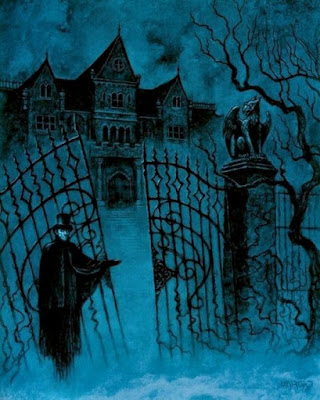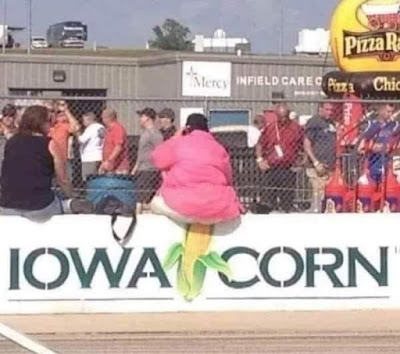Last week I posted on
why the country needs a Democratic landslide. This post is about the reasons why I think it's most likely there will actually be one. Those
reasons why are, of course, the meat of the matter -- anybody can claim to believe something, but the important thing is the supporting evidence that they can bring to back up their conclusion.
My main reason for expecting a very substantial Democratic win is straightforward. Since the
Dobbs decision, I have believed that this election will be dominated by the abortion-rights issue, and nothing that has happened since then has given me any reason to change that assessment. The need to restore and protect abortion rights will lead some Republicans (mostly women) to vote for Democrats, and will
motivate many people to vote who would not otherwise have bothered. These effects will swamp and overwhelm all other factors and will determine the outcome.
My supporting evidence for this claim is the results of all the abortion referenda, and almost all the elections, held since the
Dobbs decision. Every time abortion rights have been put to a public vote, they have won overwhelmingly, even in very red states. Moreover, turnout in these referenda has been high, suggesting both that many Republicans are voting for abortion rights, and that many new voters are being motivated to participate. As for the elections, in case after case since
Dobbs, Democratic candidates have done ten or fifteen points better than the historic norm for the state or district involved. Sometimes that shift has been big enough to allow the Democrat to win in a "red" district, sometimes not, but the point is that the shift is almost always there. This
recent election in Alaska continued the pattern. Voters are well aware that Democrats in office will uphold abortion rights, while Republicans will attack them.
Past behavior is the best predictor of future behavior. This axiom applies to voting as much as to anything else. I can't think of any reason why the abortion-rights factor would not dominate the federal election just as much as it has dominated other elections since
Dobbs (if anything,
it's increasing in importance). Moreover, most of those surprising election and referendum results since
Dobbs were
not anticipated by polling, which predicted much closer, more "normal" outcomes. This shows that the
Dobbs effect is not being captured by polling. That may be because many Republicans are telling pollsters they expect to vote Republican again and only changing their minds at the last moment, in the voting booth; it could also be that the pollsters' turnout models are not capturing the effect of so many new voters participating. It's likely that the current polling we're seeing for the federal election is similarly missing the
Dobbs effect, for the same reasons.
(I suspect there is another factor at work too -- most polling agencies are run by men, and view abortion rights as a mere "female issue", not to be taken quite as seriously as the "real" issues like the economy and immigration.)
Current polling suggests, for example, that Democrats will lose the Senate. Assuming that the West Virginia seat is unwinnable without Manchin, a net loss of even one more seat would give the Repubicans the majority. Polling suggests that Montana will be that one more seat. However, it also shows Senate races in Texas, Florida, and even Nebraska surprisingly close -- close enough that the
Dobbs effect could flip any or all of them, as well as perhaps saving the Montana seat. Thus the Democrats could hold or even expand their majority. The same effect, replicated in close House districts across the country, would certainly be enough to reclaim the House majority. As for the presidency, most polling shows a close race, with Harris holding a small lead, perhaps too small to overcome the standard Republican advantage due to the Electoral College. But the
Dobbs effect should enable her to sweep the swing states and win at least as comfortably as Biden did in 2020.
Again, this is not just speculation or wishful thinking. It requires only that the voters behave as they have done in every election since the
Dobbs ruling, and that the polls fail to predict this effect just as they failed to predict it in all those earlier cases. Imagine if this November every state and district votes ten percent more Democratic than it historically has, or even just five percent. A swing of five percent would mean a landslide; ten percent would be an annihilating tsunami. I'm not saying something like that definitely
will happen, but it would be consistent with the pattern of the last two years.
Could some other factor cancel out the
Dobbs effect? I can't think of any factor that could do so. The Republicans have become aware of the problem and many, including Trump, are frantically backing away from their former extreme forced-birth positions -- rhetorically, and in the party platform. But the majority of voters
are not being fooled by this. Decades of Republican hostility to abortion rights are baked in to the party's identity. Any claim that they are becoming more moderate on abortion has no credibility until they start
actually repealing the forced-birth laws in the states they control. And that isn't happening. The rhetorical shift might mitigate the
Dobbs effect a little, because some Republicans who only grudgingly vote Democratic to defend abortion will feel reassured enough to go back to voting Republican, but it certainly won't cancel out the entire effect.
If anything, most other factors likely to affect the outcome favor the Democrats. They have raised far more money than the Republicans, and are using it to run an effective and professional GOTV operation, whereas the Republicans have largely outsourced GOTV to various ramshackle private-sector outfits (including one set up by arch-bungler
Elon Musk), which are
not up to the job (and some of their employees
are even actively avoiding work). Harris is fighting to expand the Democratic tent, appealing to moderate conservative voters by going on right-wing media like Fox and highlighting endorsements from anti-Trump Republicans, while Trump is making no effort to broaden his appeal beyond his cult base, and has even started
calling his own voters "dumb" and "fat pigs". Harris is energetic and articulate, while Trump seems to deteriorate mentally from one day to the next. It doesn't hurt that she's been endorsed by the world's most popular celebrity -- an endorsement, one might say, taylored to produce swift results in terms of new voter registrations.
Republicans' rhetorical climb-down on abortion seems to be alienating a lot of the Christian Right vote; Muslim voters are similarly
turning against the Democrats, but there are not enough of them to make a difference except in Michigan, and even there, many will eventually sober up to the fact that Trump is far more hostile to "Palestine" than the Democrats are. (There are
positive trends in Michigan too.) There are a lot more fundamentalists and hard-line Catholics in this country than Muslims. If the Republicans ultimately lose, say, 10% of that vote and the Democrats lose 10% of Muslims, the impact on Republicans will be much greater.
Some worriers fear the Republicans will steal the election by various legal shenanigans.
In fact, this would be close to impossible. Trump tried like hell to steal the 2020 election and failed abjectly. Further legal safeguards have been added to the system since then. In 2020 Trump was in office, wielding the power of the presidency; this time he won't be.
Polling does create its own expectations, and people see what they want to see (on both sides, people routinely cite the polls that tell them what they want to hear as evidence of good news, while dismissing polls that say the opposite as worthless junk). Many Republicans, like many Democrats, refuse to look at any source of information that doesn't support their existing views, and are incredulous that any sane person could even consider voting for the opposite party. Here is a
sober and rational right-wing assessment of the state of the race; it's generally optimistic (for their side). The rank-and-file right wing is
expecting to win this one. If, as I believe, the actual result is a massive blue wave, only the smartest and best-informed of them will realize that abortion rights were the determining factor; those most deeply committed to their alternate-reality bubble will insist the election was rigged, stolen, swayed by millions of illegal aliens voting, etc, etc, etc. There may even be sporadic outbreaks of violence, for which the authorities
need to be prepared. But I
don't expect much of that.
Finally, nothing I say here should be taken as an excuse for inaction, complacency, or
voting third party to "send a message". I could, after all, be wrong. It
might be that the polls are correct and this election, for some reason, will not follow the pattern of the last two years. We were confident of winning in 2016 and it led to votes being thrown away on third candidates, votes that turned out to be critical. Every vote matters. Even if we do win by a landslide, the bigger the better -- to drive home the strength of the Democrats' mandate, to swamp any efforts at vote suppression, and to crush the stolen-election drivel that Trump is sure to start spewing forth yet again. To get Supreme Court enlargement or Puerto Rican statehood or a billionaire tax through the House, we'll need not just a majority, but a large enough one to work around the small-thinkers among the Democrats who balk at such steps as too radical. To get rid of the filibuster, we'll need a Senate majority big enough to bypass one or two similarly timid souls there. And sane Republicans will be less likely to obstruct Harris if she won the popular vote by fifteen million instead of two million, and carried some of "their" states, not just the blue ones. Every vote is vital.
Update: These reports about the
experiences of actual voters are just anecdotal evidence, of course, but they're encouraging.















































































































